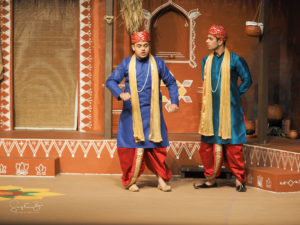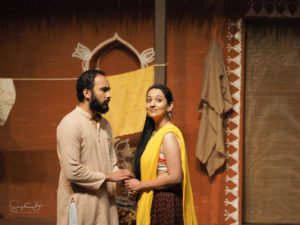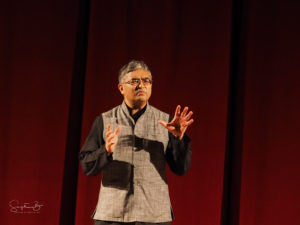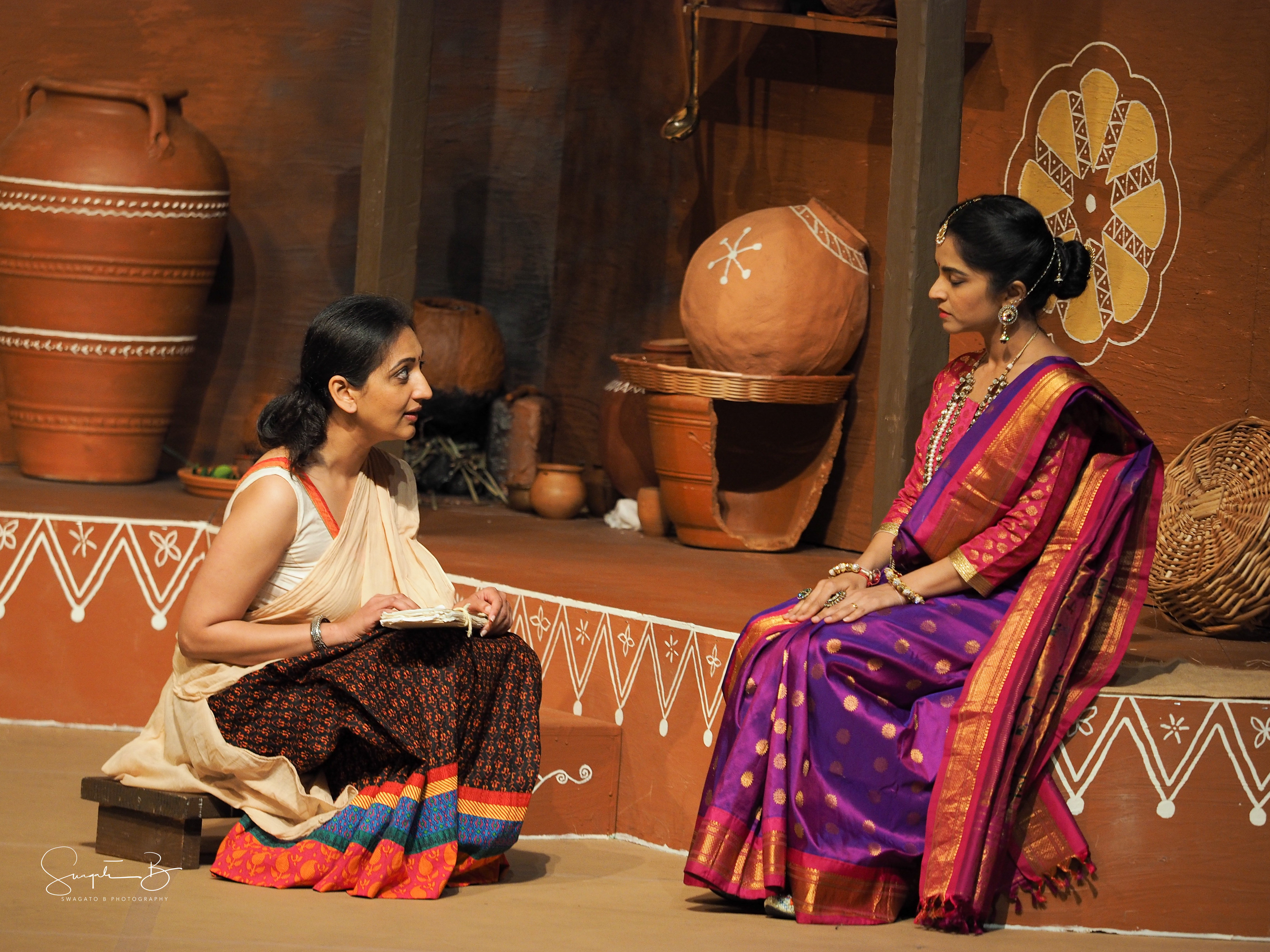
Photo credits: Swagato Basumallick
ARCHNA ASTHANA
Like the sweet smell and the endless possibilities of the first rains, the play Aashadh ka ek din takes us on a journey, drenched with emotions of love, hope, ambition, power and despair. This classic by Mohan Rakesh, set in the 4th century to lyrical prose has been touted as the first modern play of the Hindi language and enacted many times. Naatak’s 69th production, directed by Manish Sabu and rendered in Palo Alto’s Cubberly Theater offers viewers another opportunity to uncover more layers of the complex story.
The curtains open to a delightful scene of a thatched roofvillage hut and walls adorned with folksy designs, as Mallika (Preeti Bhat), wet from the falling rain prattles on about the beauty it brings. Enters Kalidas (Anush Moorthy) to the revelation that he, as the creator of Ritu Samhita, has been appointed the court poet of Ujjayini and his life will be transformed from that of a starving poet. Kalidas, reluctant to accept this honor, is conflicted between his simple, idyllic life with Mallika’s loving companionship; and untold fame and greatness. Eventually, Mallika, wanting the best for the man she loves, convinces him to go, and hides her loneliness with stoic acceptance.

Kalidas goes on to achieve great accolades for his prolific works, marries a princess, and returns to his village, yet avoids meeting Mallika. Court representatives document details of the revered Kalidas’s birthplace so they could replicate those in Ujjayini and provide an authentic environment for the writer. His wife, Priyangumanjari (Madhura Chopda), however, visitsMallika, and observes that she is true as Kalidas has mentioned her to be; at the same time humiliates her. Further, Mallika has to contend with her mother, Ambika’s (Anshu Johri) taunts of Kalidas’s complicity in his wife’s machinations; he is a man she has always disliked.

Eventually, the glitter and glamour of royal life is stripped away to reveal how meaningless it had become for Kalidas. His uncle’s laments of the cold, hard marble floors and constant surveillance by guards bring humor in the sombre enactment. A remorseful Kalidas in simple garb, having renounced his courtly life appears at Mallika’s doorstep, rueing the time spent away from her. He agonizes how he could only think back to the village and pour the thoughts of his past into his writings. Mallika hands him manuscripts of his work that she has acquired, yet the blank spaces, which, he states, are already recorded with his epic work through her emotions. Vilom’s (Harshavardhana) arrival revives the tension with Kalidas, who he has ridiculed and derided for his relationship with Mallika, but now has a new confidence about him. Kalidas becomes aware of the new reality of Vilom and Mallika, and upon hearing a child’s cry, leaves in despair, taking only the blank manuscript. Mallika deals with her present by recalling a rain-filled day and Kalidas’s wounded fawn as reminders of a simpler life. Through an unchanging set on the stage, the audience was witness to the changing seasons of life, delivered in a predictably professional manner.







